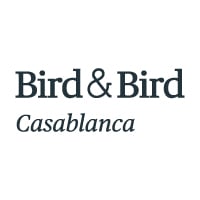
Legal and Compliance Manager | AtlantaSanad Assurance



Loubna Zaimouzen
Legal and Compliance Manager | AtlantaSanad Assurance
How do you approach managing legal aspects during periods of instability or crises, and how does your legal strategy align with the broader business strategy to ensure the organisation’s resilience?
During periods of instability or crisis, the management of legal aspects must be proactive and aligned with the company’s overall strategy. This includes risk assessment, regulatory monitoring to ensure compliance, contract management (particularly with regard to force majeure clauses), and effective dispute resolution. The legal department should collaborate closely with other departments to support the company’s objectives, minimise risks, and ensure business continuity. The aim is to safeguard the organisation’s resilience while responding to legal challenges in an agile and strategic manner.
What are the most significant cases and/or transactions that your legal team has recently been involved in?
The legal team addressed key employment law challenges during the COVID-19 pandemic, including navigating remote work policies, employee health and safety regulations, and labour rights. We ensured that the company remained compliant with evolving employment legislation while supporting employees through a period of uncertainty.
What strategic priorities are guiding you and your team in 2024?
In 2024, we are focusing on digital innovation and transformation, as well as strengthening our strategic partnerships and relationships with external parties, to remain at the forefront of legal and regulatory developments.
Do you have a cause, business-related or otherwise, that you are passionate about?
Yes, I am deeply passionate about topics related to human resources, such as emotional intelligence and well-being, both within the professional environment and in society at large. In the business world, I believe that balanced teams lead to more innovative solutions, better decision-making, and a healthier working environment.
What emerging technologies do you see as having the most significant impact on the legal profession in the near future, and how do you stay updated on these developments?
By integrating emerging technologies such as artificial intelligence and blockchain, and by pursuing continuous training, legal professionals can enhance their efficiency, accuracy, and competitiveness in an ever-evolving environment.
How do you prioritise diversity and inclusion within your legal department, and what initiatives have you implemented to foster a more inclusive and equitable work environment?
In 2024, Morocco has undertaken several significant initiatives to promote diversity and inclusion, particularly within the legal and professional sectors. One of the key developments is the reform of the Family Code (Moudawana), which is in its final stages. A draft reform has been submitted to King Mohammed VI, aiming to enhance women’s rights by addressing issues such as child marriage, polygamy, and inheritance, while seeking a balance between modernity and religious values.
Another notable initiative is the Diversity4Morocco programme, launched in 2020 and now entering a new phase with a budget of USD$660,000. This programme aims to boost women’s inclusion in the private sector through targeted support, practical solutions, and the introduction of the “Gender Edge” certification. To date, over 70 Moroccan companies have participated, with a particular focus on regions with low levels of female workforce participation.
In addition, the Moroccan Confederation of Enterprises (CGEM) and the We4She network have signed the Gender Diversity Charter, the first of its kind in Africa. This charter promotes professional diversity and the economic empowerment of women, with commitments in areas such as gender-balanced recruitment, pay equity, management diversity, and board representation.
Finally, the Government Gender Equality Plan (2023–2026) sets out 288 measures designed to empower women, with a focus on leadership, protection, and rights. Developed through a participatory approach involving multiple stakeholders, this comprehensive plan reflects Morocco’s dedication to advancing gender equality.
Together, these initiatives underscore the country’s commitment to fostering diversity and inclusion within its legal and professional landscape.
In your opinion, what are the main trends that are salient in your country currently (these can be legal, political, economy or business-based)?
In 2024, several significant trends are shaping Morocco’s economic, technological, and diplomatic landscape. Foreign investment is on the rise, with Morocco becoming a strategic hub for Chinese investments, particularly in electric battery manufacturing, thanks to its free trade agreements and advantageous geographic location.
In the field of renewable energy, the country is on track to produce 52% of its electricity from renewable sources by 2030, reinforcing its position as a leader in Africa in this sector.
Institutional reforms are also underway, with the establishment of the Ministry of Investment and the implementation of new territorial governance aimed at improving the business climate and strengthening the country’s competitiveness.
Artificial intelligence is playing a growing role across sectors such as agriculture, healthcare, and education, offering solutions to improve efficiency and service quality.
In parallel, Morocco is advancing its energy transition through major investments in green hydrogen and green ammonia, with projects targeting the production of one million tonnes of green ammonia by 2027.
These developments reflect Morocco’s commitment to enhancing its international position and promoting sustainable, inclusive development.